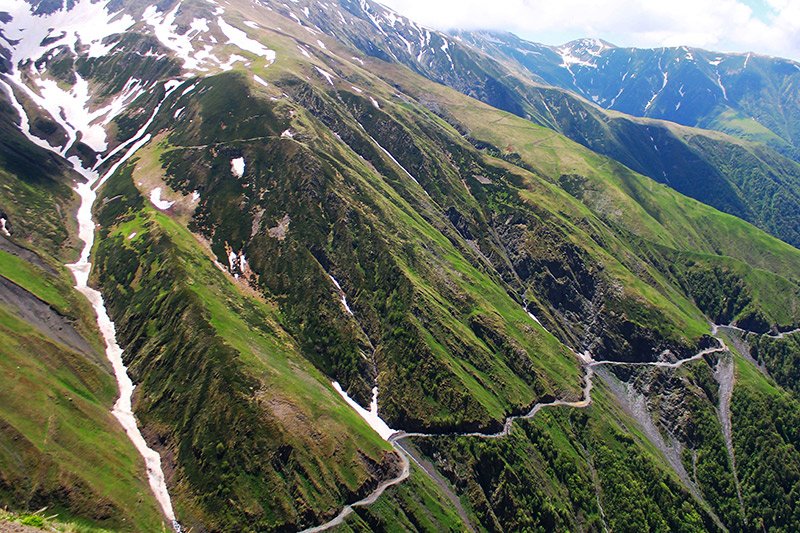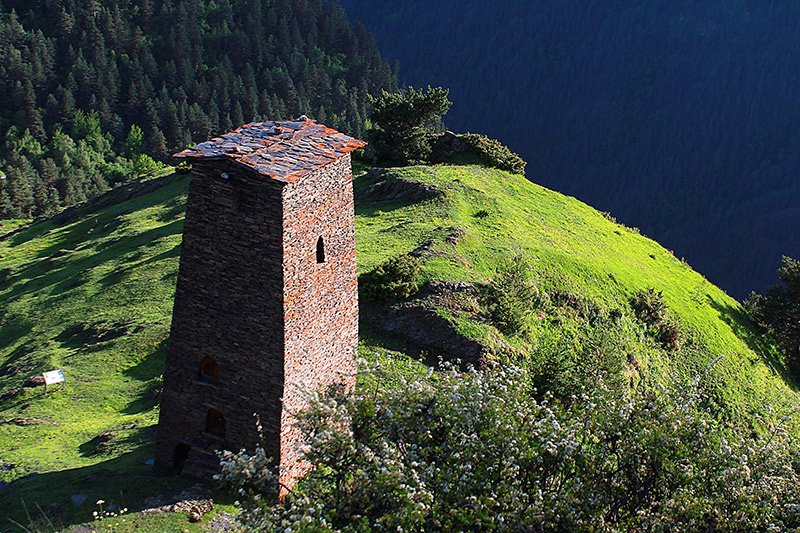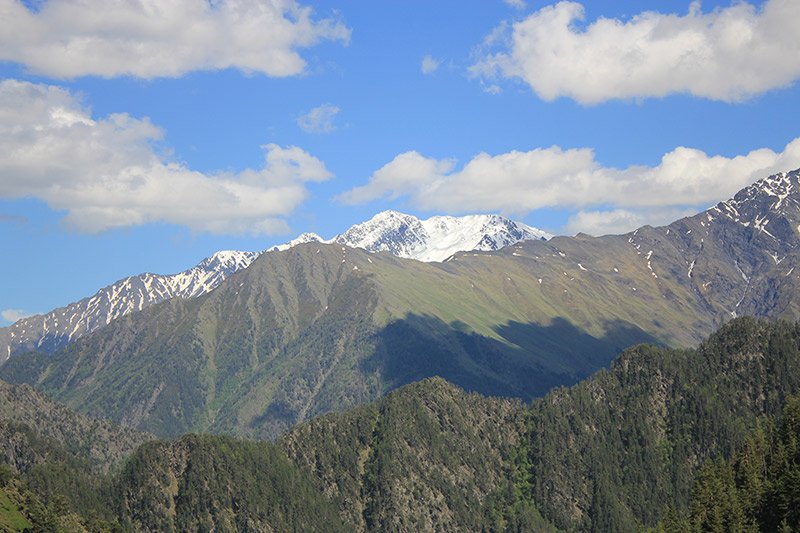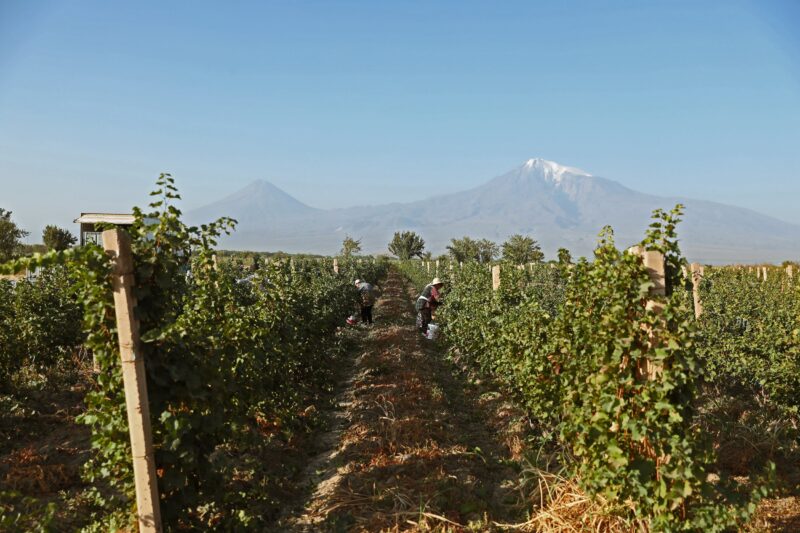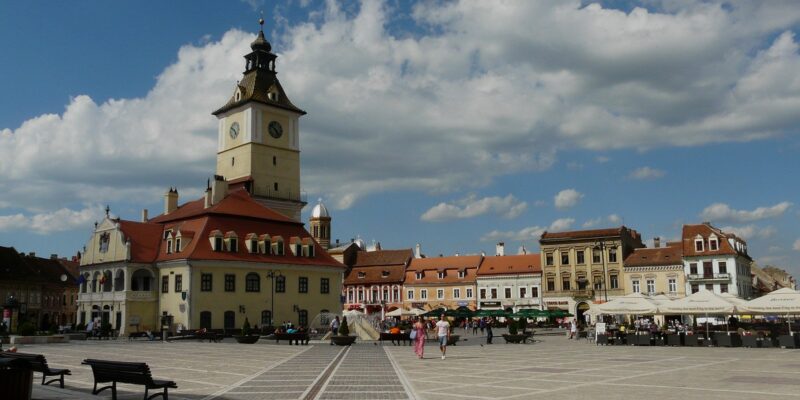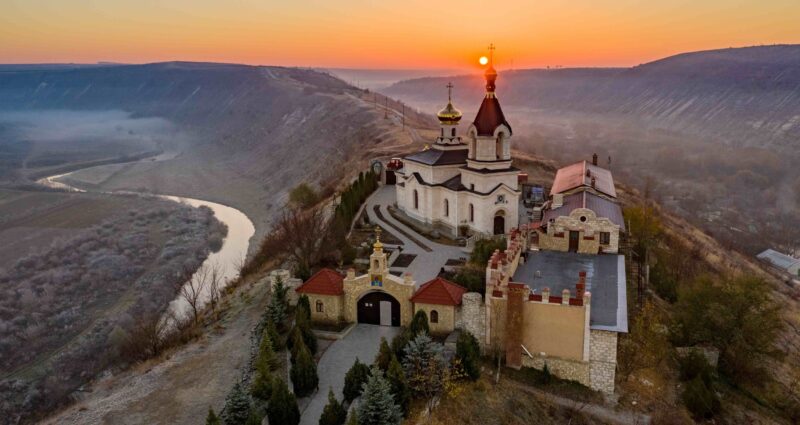| Tour Code | Start | End | Trip Status | Pricing Per person |
|---|---|---|---|---|
| GPV/100726 |
Jul 10, 2026
Friday |
Jul 19, 2026
Sunday |
Guaranteed |
£1,820.00
Single Room Supplement: £175.00 |
| GPV/070826 |
Aug 07, 2026
Friday |
Aug 16, 2026
Sunday |
Guaranteed |
£1,820.00
Single Room Supplement: £175.00 |
| GPV/040926 |
Sep 04, 2026
Friday |
Sep 13, 2026
Sunday |
Guaranteed |
£1,820.00
Single Room Supplement: £175.00 |
| GPV/060827 |
Aug 06, 2027
Friday |
Aug 15, 2027
Sunday |
Guaranteed |
£1,820.00
Single Room Supplement: £175.00 |
Wild Tusheti
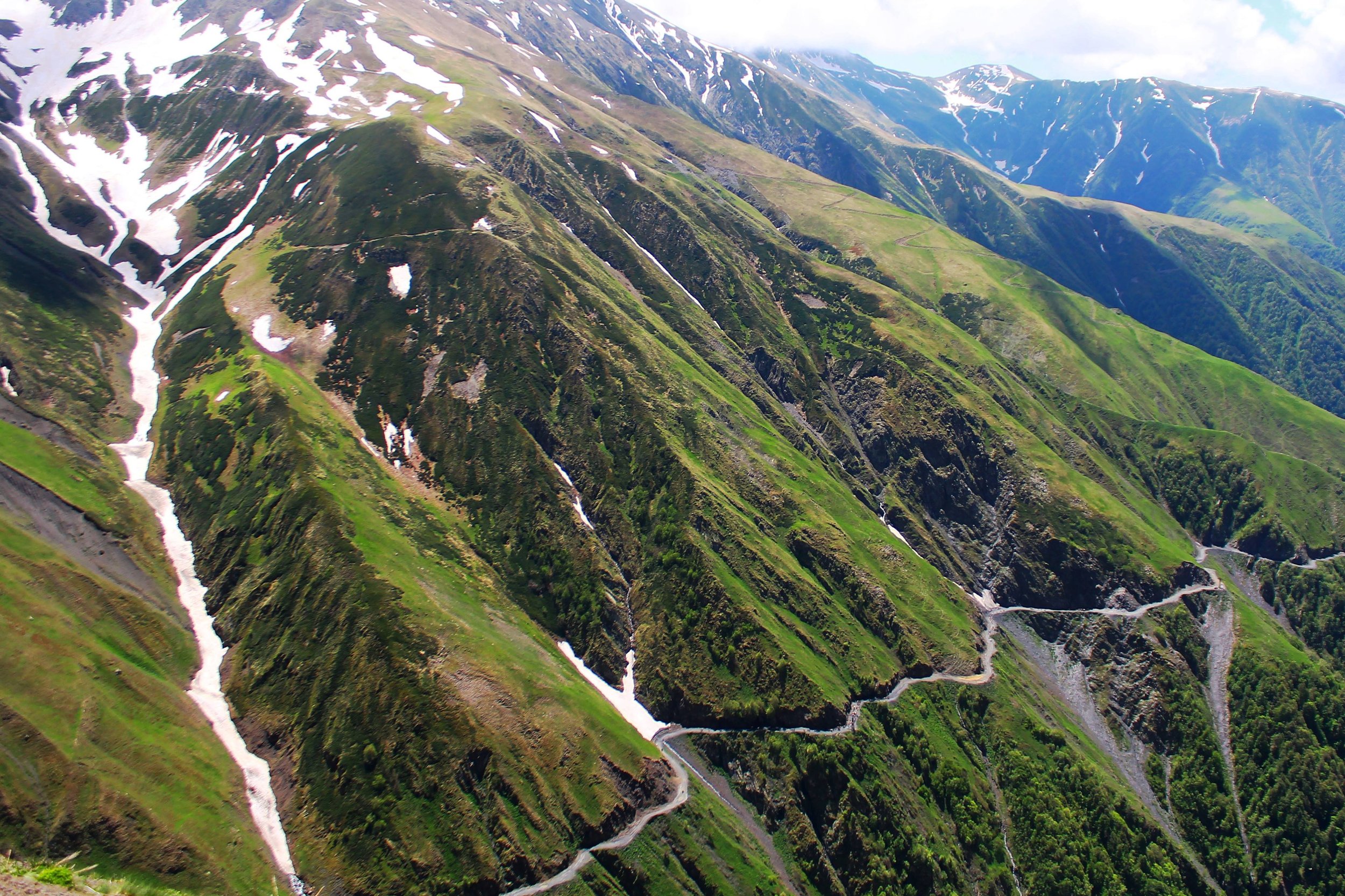
Georgia is one of the least known nations of Europe – in fact most people aren’t entirely sure whether it is actually in Europe. Hidden away and often eclipsed by its monumental neighbour it hides a wealth of diverse secrets. This trip encompasses the very best of the country: we spend time in Tbilisi and marvel at the numerous and diverse cultures that have left their mark on this city, from Ancient Persia and Medieval European crusaders to Imperial Russia and Ottoman Turkey and explore its delightful old city. We travel into the High Caucasus to the wild and untamed province of Tusheti where age old traditions are still entrenched into the culture. We explore the cave monasteries of David Gareji where 14 centuries of Georgian Christians have crafted an impressive rock-hewn monastic foundation. For lovers of wine we will also visit the ancient wine region of Kakheti, arguably the original home of all viticulture and taste the exquisite wines produced there. Our travels then take us over the dizzying heights of the Abano Pass, only seasonally open and a gateway to some of Europe’s most isolated villages. We spend time getting to know and understand the area and its tenacious and proudly isolated people, enjoying the wholehearted hospitality of family run guesthouses. Our exploration of the incredibly isolated and often seasonal Tush villages will include the option of some relatively straightforward, but highly rewarding walks where the beauty of the alpine-meadows contrasts with the awe-inspiring mountain scenery. Georgia is renowned for its local hospitality so travel with us on this cultural and historical adventure and discover the furthest reaches of this intriguing and stunning country where few outsiders tread.
Arrival and departure transfers in Algiers
Overland transport throughout with professional driver
All accommodation
Services of English-speaking guide / tour leader
Meals as listed, B – Breakfast, L – Lunch, D – Dinner
Entrance fees for sites listed as part of the itinerary
International flights
Any airport taxes
Travel Insurance
Visa – when required
Items of personal nature
Tips (Discretionary)
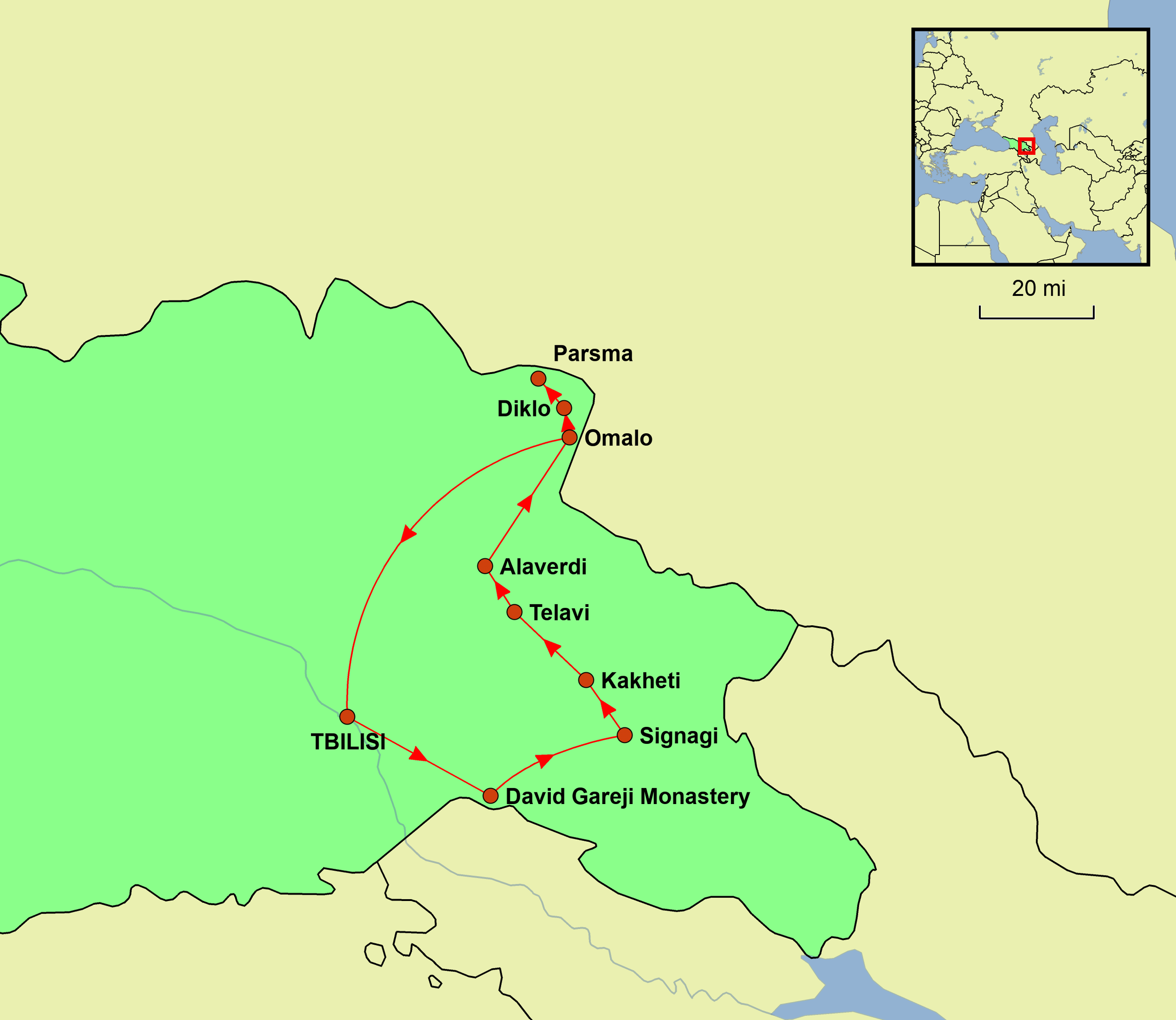
The Georgia Wild Tusheti Tour is a 10-day small group adventure that immerses travellers in the remote beauty and rich traditions of Georgia’s Tusheti region. Beginning in Tbilisi, the itinerary includes exploration of the city’s historic sites, such as the Alaverdi Cathedral and the rock-hewn David Gareji Monastery. From Tbilisi, the journey ventures into the rugged Caucasus Mountains, crossing the challenging Abano Pass to reach the isolated Tusheti province. Here, visitors experience the unique culture of the Tush people, staying in family-run guesthouses and enjoying the region’s renowned hospitality. The tour offers opportunities for scenic walks through alpine meadows, visits to ancient villages, and encounters with local traditions that have remained largely unchanged for centuries. With a moderate fitness level rating of 3/5, the tour is suitable for those seeking an immersive cultural experience in one of Europe’s most remote and untouched regions.
Tbilisi’s Historic Sites
Explore the vibrant capital of Georgia, with visits to landmarks like the Alaverdi Cathedral and the ancient David Gareji Monastery, offering a glimpse into the country's rich history and culture.
Tusheti Region and Abano Pass
Journey into the remote Tusheti region, crossing the challenging Abano Pass, one of the highest motorable points in the Caucasus, to discover a land of stunning natural beauty.
Traditional Tush Villages
Experience life in the ancient villages of Tusheti, where the unique culture of the Tush people is preserved, with stays in family-run guesthouses that provide insight into their customs and way of life.
Scenic Walks in the Caucasus Mountains
Enjoy peaceful walks through alpine meadows and rugged mountain landscapes, surrounded by the untouched beauty of the Caucasus.
Immersive Local Culture
Engage with the local traditions of Tusheti, from cuisine to folk practices, providing an authentic experience of Georgia’s hidden cultural gems.
Download the Information Pack
To download the tour full dossier, which includes a complete day-by-day itinerary breakdown and detailed tour information, fill in the details below.

Foreign Office Travel Warnings Before booking your tour, please familiarise yourself with the country specific information provided by the UK’s Foreign, Commonwealth and Development Office (FCDO) – www.gov.uk/foreign-travel-advice. This includes important information such as latest immigration requirements, and details of any travel advisories. We constantly monitor the advice posted by the FCDO. In particular we will always advise clients of any travel warnings. At present there are no warnings against travel to the parts of Georgia that we visit on this tour. Please feel free to contact us should you have any specific concerns or would like to know in detail what measures are being taken to ensure visits remain trouble free and without incident. It should be noted that this information applies to British citizens. Other nationals are asked to check the current position of their respective government. Visa Information At the time of writing British, US and Australian nationals do not require a visa for a tourist visit to Georgia. For further details please visit the applicable website shown below. British Nationals – www.gov.uk/foreign-travel-advice US Nationals – travel.state.gov/content/travel/en/international-travel.html Australian Nationals – www.smartraveller.gov.au Other nationals should check the latest requirements with the authorities in their home country, or with the destination’s nearest embassy or consulate. Should you require any documentation to support a visa application, such as a letter of invitation, upon request this will be provided by Undiscovered Destinations after receipt of your balance payment. As it is the travellers’ responsibility to ensure that they meet all entry requirements it is essential that you check the rules and any other conditions at the time of booking and again when making your balance payment. In addition, we would strongly advise that you make a final check around two weeks before your arrival. This is important as requirements can change at short notice. Undiscovered Destinations, when possible, will provide guidance about entry rules, but in the first instance please contact the relevant authorities, including the applicable embassy or consulate for assistance. Passports It is your responsibility to ensure that you are in possession of a full passport, valid for at least six months after the date of return to your country. We strongly advise that your passport contains a minimum of two blank pages, as this may be a requirement of the local immigration authorities. In addition, certain countries will stipulate that the two blank pages are opposite each other. If you are unable to meet these requirements, you may be refused boarding by your airline or denied entry by the immigration authorities. For specific information about the requirements for your destination please check with the country’s embassy or consulate. Alternatively, UK citizens can visit www.gov.uk/foreign-travel-advice. Vaccinations & Protection As with travel to most parts of Eastern Europe, we strongly recommend that you contact your doctor’s surgery or a specialist travel clinic for up-to-date information, advice, and the necessary vaccinations. For a visit of less than one month you maybe advised to have immunisations against the following: Diphtheria and Tetanus, Hepatitis A, Typhoid, Meningitis. The use of a DEET-containing insect repellent may also be recommended. The legal status and regulation of some medicines prescribed or purchased in your home country can be different in other countries. If you’re travelling with prescription or over-the-counter medicine, read this guidance from NaTHNaC on best practice when travelling with medicines. For further information on the legal status of a specific medicine, you’ll need to contact the embassy, high commission or consulate of the country or territory you’re travelling to. Travel Insurance It is a condition of booking with Undiscovered Destinations that you have adequate valid travel insurance. It is your responsibility to arrange appropriate travel insurance and ensure you have read and understood the full terms and conditions of your travel insurance policy to ensure that you are covered for all activities you intend to undertake whilst on the tour, including all optional activities. Your Insurance Policy must fully cover you for medical expenses (including cover for Covid-19 conditions) and emergency repatriation to your home country and be valid for the entire duration of your holiday. Local Conditions When travelling to our destinations, many of which are underdeveloped and untouristed by mainstream tourism, a good deal of patience and a sense of humour is an important attribute. This will help you to cope with problems such as ageing or poor infrastructure and when maintenance may not be as high as we would always like. The choice of appropriate accommodation in some towns and cities (particularly the smaller places) can be limited, and standards of both service and maintenance can be less than polished. Guides and other service providers in some of our destinations do not always have the decades of collective practice and experience that their counterparts in more developed countries can draw upon. Although we will always try and resolve any issues as quickly as possible, on occasions there may be some shortcomings which no matter how hard we try will be unavoidable.
